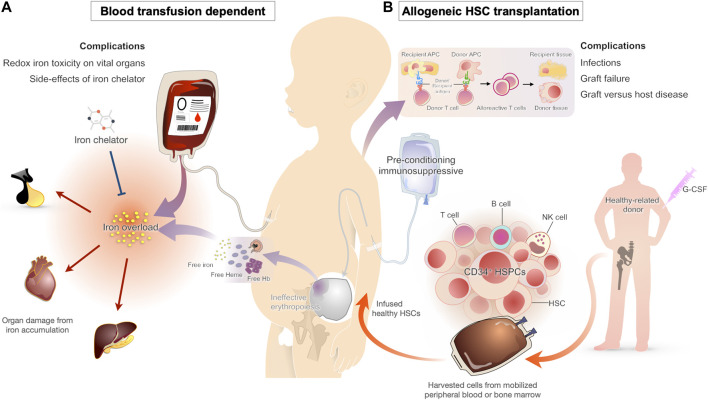FIGURE 1.
Conventional therapy approaches for β-thalassemia patients and their complications (A) Chronic blood transfusion is the standard of care for β-thalassemia patients to maintain adequate hemoglobin levels for effective cardiovascular status. One of the major complications from a blood transfusion is iron overload. As the transfused blood contains iron and the human body lacks a functional iron excretion mechanism, all individuals treated with chronic transfusion develop iron overload, which leads to organ damage from oxidative injury. Iron chelators are typically started early in transfusion-dependent β-thalassemia to prevent the complications of transfusional iron overload (B) HSC transplantation has been used for decades as the curative approach for β-thalassemia patients. The HSC replacement substitutes ineffective erythropoietic stem cells with effective cells from a healthy donor. Even with the improvement of transplant technologies during the last decade, severe complications such as infections, graft versus host disease, and graft failure are occasionally seen.

